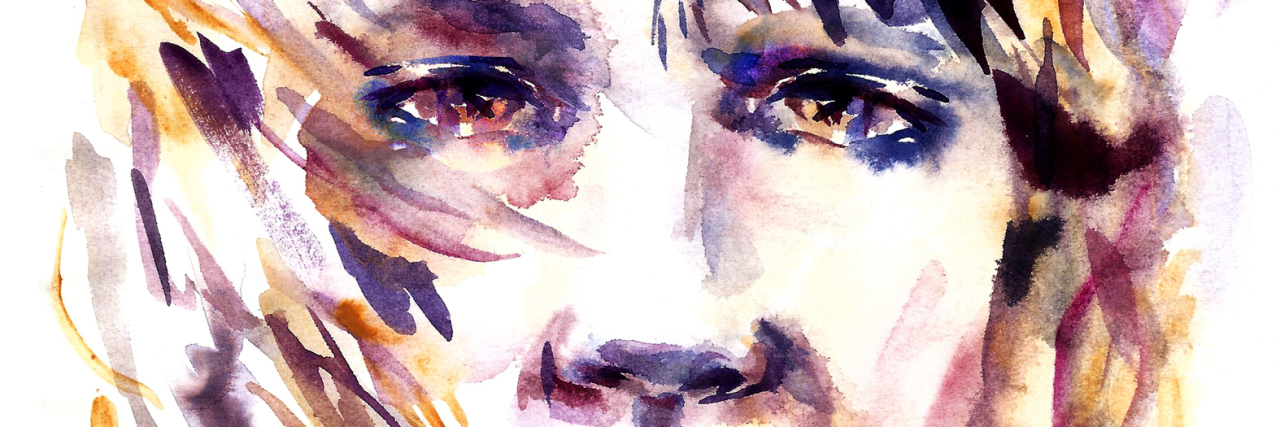We Need To Talk About Disgust Toward Sex When Healing From Sexual Trauma
Editor's Note
If you’ve experienced sexual abuse or assault, the following post could be potentially triggering. You can contact The National Sexual Assault Telephone Hotline at 1-800-656-4673.
Recently, I came upon this article about the topic of disgust toward sex on Psychology Today.
After reading the article, I pointed out that it neglects to even mention the issue of trauma as a source of sexual disgust. While I agree that culture, religion, gender and sexual orientation are all important factors to consider in any study about sex, to ignore trauma is a missed opportunity at best and a gross omission at worst.
Responses to my comment ranged from positive to negative, including someone asking why everything has to be about trauma. My reply? It doesn’t. But … in regards to this topic, sexual trauma is so pervasive in our culture (1 in 3 women and 1 in 4 men according to the CDC), and so many survivors of sexual violence struggle with lingering effects upon their perceptions of what healthy sex looks like, to leave this factor out of the discussion is ignoring a huge percentage of the population.
From my own personal experience as a survivor of child sexual abuse, disgust toward sex and specific types of sexual activities has been the last remaining lingering effect of my post-traumatic stress disorder (PTSD). In my experience, it’s one that is often the most overlooked by clinicians in terms of healing from trauma, likely because of the stigma associated with talking openly about sex. Being able to overcome things like flashbacks, somatic memories, nightmares, fear of trusting others and reclaiming a sense of safety in the world are all critical aspects of healing. But once these are achieved, how does one begin to rediscover who they could have been sexually had the sexual violence never occurred?
That’s where disgust comes in. I have spent over five years in therapy, three working intensively with a trauma therapist doing eye movement desensitization and reprocessing (EMDR) therapy and other modalities to work through my abuse. I am no longer debilitated by my PTSD symptoms, but in spite of all the hard work we have done, I still struggle to figure out who I am as a sexual being. There are so many sexual things that I find disgusting, that I wish I could revisit through the lens of a consenting adult who has power over what I choose to engage in with someone I love. It’s something my therapists and I have begun working through, but it’s incredible how pervasive the entanglement between abuse and sex is in terms of arousal and desire.
As I read through the categories listed in this particular article, I could feel my sense of shame and repulsion arise at even the mention of some of the activities. For me, all the things I have disgust toward are direct correlations to specific violations that occurred in context with my abuse. They affect me on every level of my being, and all five of my senses. To be able to even fathom engaging in them would feel like a violation of the child who was abused and an acceptance that what happened to me was in some way OK. As much as I try to remind myself that I’m no longer that abused child, I have no comprehension of what it is that I, the adult healing from trauma, desire sexually. There’s too much baggage there to allow me to even conceive of trying something that is so intricately woven into the fabric of my abuse experience, even if I might actually enjoy it in the here and now.
That’s why I had to speak up. Disgust is, in fact, one of the primary human emotions we experience along with anger, joy, fear and sadness. Often it can inform us of something that is potentially dangerous, as in avoiding a food that is toxic or, in the case of those items listed as “sexually taboo,” being not just societally objectionable but morally wrong. But when this disgust isn’t coming from a protective instinct, it can actually inhibit one from fully experiencing one’s humanity. It can deprive us of something that could potentially bring us joy and connection with another human being, or even with our selves.
It’s crucial for survivors and clinicians working with them to be able to discuss this aspect of healing without it being so stigmatized. Sex as a subject tends to be avoided because it makes people uncomfortable. But it is part of being a functioning healthy adult and to fully heal from our sexual trauma, we must be willing to engage in open and unfiltered dialogue about reclaiming our sexuality for ourselves. I know that I will never consider myself “healed” from abuse until I can live within my body and mind as a sexual being uninhibited by the imprint of that abuse — capable of deciding what feels good and right because I do or do not enjoy it rather than because I should or should not do so. That is what freedom from sexual violence looks like to me, and what I encourage other survivors to strive for in their own journeys toward becoming their most complete, unencumbered and true selves.
Getty Images photo via Alexandra Merezhnikova

